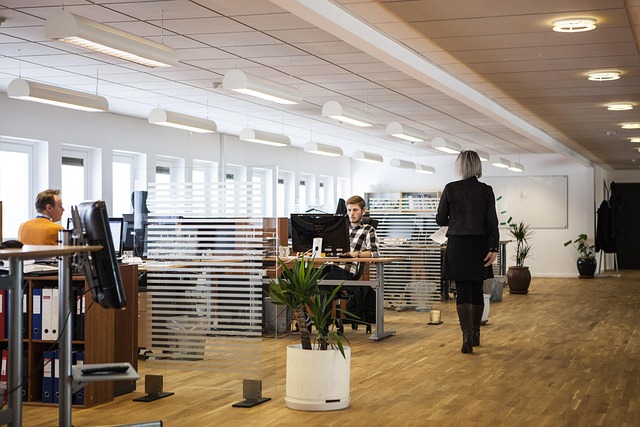In New Bedford, MA, the pursuit of sustainable living extends beyond eco-conscious practices in homes and businesses; it also encompasses landscaping and fencing solutions. This article explores the burgeoning trend of eco-friendly fencing materials, highlighting their diverse options, tangible benefits, and environmental advantages over traditional counterparts. From aesthetically pleasing natural barriers to the ecological impact analysis, we delve into how these green alternatives offer both functional protection and a harmonious blend with nature.
- Eco-Friendly Fencing Options in New Bedford
- Benefits of Using Sustainable Materials
- Natural Barriers for Effective Protection
- The Environmental Impact of Traditional vs. Eco-Fencing
- Choosing the Right Green Fence for Your Space
Eco-Friendly Fencing Options in New Bedford
New Bedford, MA, residents now have a growing array of eco-friendly fencing options to choose from, contributing to both environmental conservation and aesthetic appeal. Traditional materials like wood, metal, and vinyl can pose environmental challenges, including deforestation, resource extraction, and production waste. In contrast, modern eco-friendly alternatives offer durable, low-maintenance solutions that blend seamlessly with natural landscapes.
Among these, composite fencing stands out for its versatility and longevity. Made from a mixture of recycled plastics and wood fibers, composite fences are resistant to rot, decay, and rust, eliminating the need for frequent repairs or replacements. They also provide excellent privacy and security while minimizing the environmental footprint. Other options include natural materials like bamboo, cedar, and recycled metal, each offering unique textures, colors, and patterns that can enhance the curb appeal of any property in New Bedford.
Benefits of Using Sustainable Materials
Using eco-friendly fencing materials offers numerous advantages for both homeowners and the local environment in New Bedford, MA. One of the primary benefits is the reduction of carbon footprint; sustainable options are typically made from recycled or naturally renewable sources, minimizing the need for energy-intensive manufacturing processes and thus lowering greenhouse gas emissions.
Additionally, these materials often have a longer lifespan compared to traditional fencing, which reduces waste generation. They are also less harmful to local ecosystems as they do not contain chemicals that can leach into the soil or water. Furthermore, eco-friendly fencing can enhance the aesthetic appeal of properties, providing natural, attractive solutions that blend seamlessly with surrounding landscapes, contributing to the overall beauty and ecological balance of New Bedford’s neighborhoods.
Natural Barriers for Effective Protection
In the quest for sustainable solutions, natural barriers offer an eco-friendly approach to fencing in New Bedford, MA. These organic alternatives not only enhance the aesthetic appeal of outdoor spaces but also provide effective protection. Materials like wood, bamboo, and hemp are renewable resources that can be sustainably sourced and processed, reducing environmental impact compared to traditional synthetic fences.
Unlike their plastic counterparts, natural barriers are breathable, allowing for better air circulation and reducing heat accumulation. This property is particularly beneficial in the New Bedford climate, where maintaining a comfortable temperature in outdoor areas becomes a priority. Moreover, these materials are less prone to degradation from UV rays, ensuring longer-lasting protection without the need for frequent replacements.
The Environmental Impact of Traditional vs. Eco-Fencing
In New Bedford, MA, understanding the environmental impact of fencing materials is more crucial than ever. Traditional fencing options often rely on non-sustainable resources, contributing to deforestation and pollution. These materials may also contain harmful chemicals that can leach into the soil and water sources over time. On the other hand, eco-friendly fencing materials offer a greener alternative. They are typically made from recycled or renewable resources, such as bamboo, wood from certified sustainable forests, or even recycled plastic. By choosing these options, residents of New Bedford can significantly reduce their carbon footprint while enjoying the benefits of durable and aesthetically pleasing fences.
Choosing the Right Green Fence for Your Space
When considering an eco-friendly fence for your New Bedford, MA property, it’s crucial to match the material to your space’s unique needs and aesthetics. Different green fencing options offer varying levels of durability, privacy, and visual appeal. For instance, bamboo fences are lightweight yet sturdy, providing a natural, aesthetic look perfect for smaller gardens or areas requiring a more delicate barrier. On the other hand, recycled plastic fences are highly durable and low-maintenance, ideal for larger properties seeking a robust solution that can withstand various weather conditions.
Additionally, consider the level of privacy desired. Woven bamboo or livable hedges offer a more transparent, natural barrier suitable for defining garden borders or creating a sense of seclusion without blocking out light completely. For complete privacy, opt for solid fences made from recycled materials or treated wood that provide a clear separation between your space and neighbors.
